Mar Piquer Martínez reveals how PsicoNED brings neurorehabilitation and child cognitive stimulation in low-resource areas closer to people in Zanzibar.
Introduction
Psychology is a fundamental pillar in well-being and public health. Its contributions to society range from health promotion to the treatment of mental disorders, the development of public policies and the promotion of a more inclusive and equitable society through research and community and clinical intervention. In an integrated health system, psychology makes it possible to understand and accompany the emotional, cognitive and social dimensions that influence people’s physical and mental health.
Development of psychology and neuropsychology
In Spain, psychology began to consolidate as a discipline from the 1970s, with the creation of specific faculties and, later, with the inclusion of the Internal Resident Psychologist (PIR) figure in 1993 as a route to clinical specialization. Neuropsychology, for its part, has experienced notable development in hospitals and rehabilitation centers, responding to the needs of people with brain injury, dementias or neurodevelopmental disorders. Currently, it is estimated that in Spain there are approximately 5,580 psychologists per 100 million people.
Development of psychology and neuropsychology in vulnerable settings
If these figures already seem moderate, those reported by the World Health Organization (WHO) for low-income countries like Tanzania are alarming: barely 5 psychologists per 100 million people, the equivalent to the population of Spain and Italy.
Much of sub-Saharan Africa has experienced a much later and more unequal development of psychology as an academic and professional discipline. University training in psychology has expanded mainly since the 1990s and 2000s, with strong influence from Western models. Today advances are considerable, with graduate programs in countries such as Tanzania, Nigeria, South Africa or Ghana, but the numbers remain very limited. Neuropsychology, due to its high specialization, is just beginning to establish itself, and is generally linked to research projects or pilot programs in urban hospitals.
The consequences of not investing in the development of psychology -and mental health in general- are especially serious for the most vulnerable populations. In childhood, the lack of early diagnosis and intervention in emotional, learning or neurodevelopmental disorders multiplies the risk of school failure, social exclusion and chronic suffering in adult life. In addition, the absence of neuropsychology programs in school and health settings deprives many children of rehabilitation opportunities and the full development of their abilities.

Subscribe
to our
Newsletter
Vulnerable environments and child development: risks and inequalities
Although academic advances are significant, in low-income countries the mental health gaps remain deep. There, urgent priorities (nutrition, housing, access to drinking water or basic medical care) push mental health to the background. However, we know that psychological and neurological development is highly sensitive to the environment, and that poverty not only limits access to services but also shapes the brain from the first days of life.
Science has been clear in recent decades: poverty has a direct impact on child brain development. Studies such as those by Hackman et al. (2010) and Schneider et al. (2016) show how malnutrition, chronic stress, lack of stimulation and limited access to education affect key brain regions responsible for executive functions, language, memory and emotional regulation. These limitations condition the future of boys and girls in terms of learning, autonomy and social integration.
When a neurodevelopmental condition such as hydrocephalus or spina bifida is added to this context, a double vulnerability arises that further compromises quality of life. This idea is especially important to understand the reality facing the African continent, where it is estimated that more than 200,000 children a year will be born with some neural tube defect or develop hydrocephalus.
Scientific evidence indicates that intervening in the early years of life can make a significant difference. Neville et al. (2013) show that early interventions, applied with adequate resources, succeed in mitigating the effects of inequalities in development. Complementarily, Weisleder et al. (2016) and Hammond & Tsao (2021) demonstrate that even in conditions of extreme poverty, structured cognitive stimulation improves emotional and executive skills. These findings underline the urgency of implementing early care programs that are accessible, sustainable and culturally adapted.
It is in this context that the work of the NED Foundation takes on special relevance. In Zanzibar, PsicoNED seeks precisely to bring psychological and neuropsychological services closer to those who need them most, with a culturally adapted and sustainable approach, taking into account the real needs of the environment.
The local reality in Unguja and Pemba
Zanzibar, with its two main islands -Unguja and Pemba-, clearly reflects the health inequalities that persist in sub-Saharan Africa. Although the national system of Tanzania guarantees free basic care, structural poverty and the scarcity of specialized health personnel limit real access to services. Pemba, the northern island of the Zanzibar archipelago, faces significant socioeconomic challenges: up to half of the population lives under conditions of poverty, with limited access to education, health and basic infrastructure, placing it in a vulnerable situation (World Bank, 2017).
In the field of mental health and neurodevelopment, the shortcomings in Zanzibar are particularly significant. Unguja has some reference hospital services and the presence of organizations such as the NED Foundation that offer psychological and neuropsychological care. However, these resources remain insufficient in the face of the magnitude of demand. The situation in Pemba is even more critical, since there are practically no specialized psychology services, so families depend on costly transfers to Unguja or Dar es Salaam, or on informal support within the community.
Differences in psychological and neuropsychological care by place of birth
The availability of specialized care services will largely determine the evolution, recovery and quality of life of a child with hydrocephalus and spina bifida, or more generally, with a neurodevelopmental condition.
In the following table we can observe how the same case would follow a very different path depending on whether they were born in Spain, Unguja or Pemba, which makes the consequences of inequality in access to health services clearly visible:
| Spain | Unguja | Pemba | |
|---|---|---|---|
| Initial hospital care | Relatively early surgery, postoperative care, neurological follow-up. | Surgery possible at NED Institute Mnazi Mmoja or other reference centers, although with delays, dependence on external support, possible complications due to lack of specialized follow-up. | Very limited; there are no local hospitals with pediatric neurosurgery. The family would have to travel to Unguja or further, with cost, transport and logistics barriers. |
| Neuropsychology and rehabilitation | Early intervention: access to neuropsychologists, physical, occupational and speech therapies. Multidisciplinary follow-up. | Partial: projects like House of Hope provide physical therapy, assessment and neuropsychological intervention. | Practically non-existent. No specific local infrastructure. Early intervention is difficult or delayed. |
| Educational support | Right to curricular adaptations, support classrooms, specialized teachers, early intervention programs. | High likelihood of early school exclusion, schools unable to incorporate supports, few transportation options, lack of awareness/specific training among teachers. | High likelihood of early school exclusion, schools unable to incorporate supports, few transportation options, lack of awareness/specific training among teachers. |
| Family/social support | Information, psychological guidance, social assistance, family support associations, coordination with social services; in many cases health coverage and benefits. | Very limited state support; some local NGOs provide guidance; the family assumes significant economic, physical and emotional burdens. | Practically no institutional support; social isolation and lack of recognition of the disability. |
| Service coordination | Multidisciplinary teams (neurosurgery, pediatrics, rehabilitation, neuropsychology, social work) with defined protocols in many regions; systematic follow-up. | Informal or occasional coordination; lack of clear intersectoral protocols; dependence on external funding and specific projects. | Very little coordination; non-integrated services; absence of clear care protocols or pathways; great fragmentation if any supports exist. |
NED Foundation and PsicoNED: bringing neuropsychology closer to those who need it most
This comparative example highlights the enormous gaps in access to specialized services. For this reason, the NED Foundation has been working in Zanzibar since 2008, with the aim of guaranteeing access to basic neurosurgical services and training local professionals.
In 2021 we took an important step with the opening of the House of Hope, a space that provides accommodation and sustenance to children with hydrocephalus and spina bifida and their families, who must move to Unguja to receive specialized care and find themselves in situations of extreme vulnerability. This center also offers physiotherapy and, since 2023, a comprehensive psychological care service. Through the PsicoNED project, children and their families receive support through individual neurorehabilitation sessions, support groups, training aimed at local professionals and students, as well as home and school follow-up, ensuring complete accompaniment beyond the hospital.
For some years now we have also taken our work to Pemba, carrying out neurosurgery and gynecology missions, and exploring how to implement PsicoNED on the island. During these visits we have been able to see the reality of families firsthand by visiting their homes and make initial approaches to psychological assessment. This helps us to plan future interventions more effectively and adapted to the context.
NeuronUP for cognitive stimulation in low-resource areas
Our immediate objective is to gather information about families, carry out neurodevelopment assessments of the children and design individualized interventions, as well as train local people so that they can apply techniques of cognitive stimulation and neurorehabilitation. In this process, collaboration with NeuronUP is key, since it allows training people with no prior experience using materials adapted to Swahili, which also makes the interventions more accessible and culturally adapted.
Conclusion: toward neurorehabilitation in low-resource areas
The challenges are many: there is no fixed infrastructure, specialized personnel are scarce, and local services and associations operate in a fragmented way. But it is precisely this situation that drives us to continue.
None of this would be possible without the collaboration of volunteers who devote their time and effort to cooperation missions, partners who contribute their grain of sand regularly or those who trust us through one-off donations. Thanks to them we can continue training local staff and developing specialized services, such as neuropsychology, so that in the future they are the ones who lead and sustain their own services.
Our goal is that, over time, basic and specialized care ceases to be a luxury and is within reach of all children who need it, regardless of where they are born, thus reducing the enormous differences that statistics reflect today.
References
- Cairós González, M. E., Montagud Fogués, J. V., & García-Rubio, M. J. (2024, November 15). Millions of people lack neuropsychological care: this is how we try to bring it to Zanzibar. El País, Planeta Futuro. https://elpais.com/planeta-futuro/2024-11-15/millones-de-personas-carecen-de-atencion-neuropsicologica-asi-intentamos-llevarla-a-zanzibar.html
- Dunning, D. L. (2013). Does working memory training lead to generalized improvements in children with low working memory? Developmental Science, 16(6), 915–925. https://doi.org/10.1111/desc.12068
- Hackman, D., Farah, M. & Meaney, M. Socioeconomic status and the brain: mechanistic insights from human and animal research. Nat Rev Neurosci 11, 651–659 (2010). https://doi.org/10.1038/nrn2897
- Hentges, R. F., Madigan, S., Tough, S., McDonald, S., & Graham, S. A. (2021). Maternal depressive symptoms and language development: The moderating role of child temperament. Developmental Psychology, 57(6), 863–875. https://doi.org/10.1037/dev0001184
- Schneider, M., Beeres, K., Coban, L., Merz, S., Schmidt, S. S., Stricker, J., & De Smedt, B. (2016). Associations of non‐symbolic and symbolic numerical magnitude processing with mathematical competence: A meta‐analysis. Developmental Science, 20(3), e12372. https://doi.org/10.1111/desc.12372
- Weisleder A, Fernald A. Talking to children matters: early language experience strengthens processing and builds vocabulary. Psychol Sci. 2013 Nov 1;24(11):2143-52. doi: 10.1177/0956797613488145. Epub 2013 Sep 10. PMID: 24022649; PMCID: PMC5510534.
- World Bank. (2017, November 3). Zanzibar sees a slight decline in poverty except for Pemba [Press release]. World Bank. https://www.worldbank.org/en/news/press-release/2017/11/03/zanzibar-sees-a-slight-decline-in-poverty-except-for-pemba
Don’t miss other related content about the Zanzibar project:
“This article has been translated. Link to the original article in Spanish:”
Neurorrehabilitación y estimulación cognitiva en zonas de bajos recursos: el proyecto PsicoNED en Zanzíbar
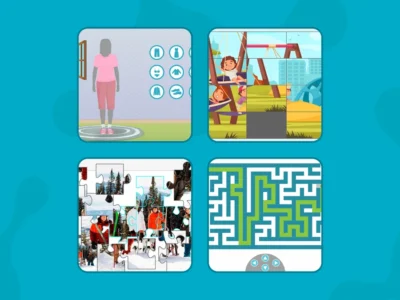

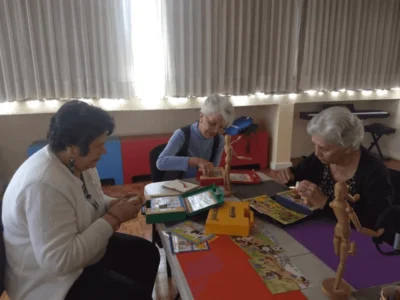
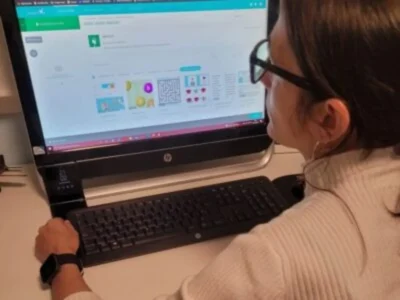
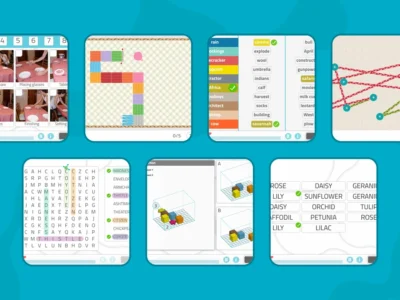
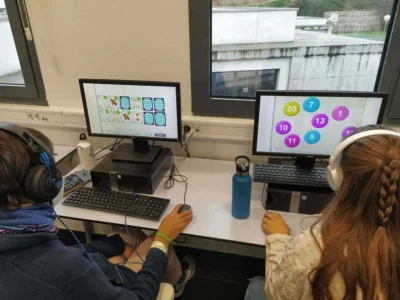
 Brain during pregnancy: neurocognitive changes and maternal neuroplasticity beyond the mommy brain
Brain during pregnancy: neurocognitive changes and maternal neuroplasticity beyond the mommy brain
Leave a Reply